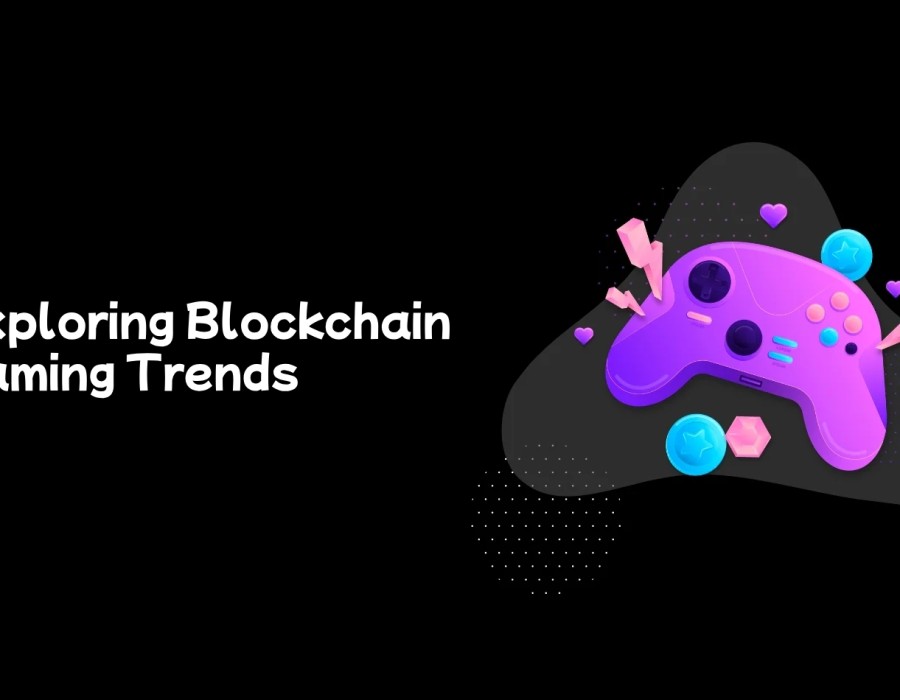In recent years, the intersection of blockchain technology and gaming has been gaining significant traction. Blockchain's decentralized nature offers a myriad of opportunities for the gaming industry, ranging from asset ownership and interoperability to enhanced security and transparent transactions. In this blog post, we'll delve into the latest trends, limitations, and notable examples in blockchain gaming as of 2024.
Blockchain Gaming Trends
1. Play-to-Earn (P2E) Models:
One of the most prominent trends in blockchain gaming is the rise of play-to-earn models. These games enable players to earn cryptocurrency or in-game assets that hold real-world value as they progress through the game. This concept has gained popularity due to its potential to democratize gaming rewards and incentivize player engagement.
2. NFT Integration:
Non-fungible tokens (NFTs) have revolutionized the concept of digital ownership, and their integration into blockchain games has been widespread. NFTs enable players to truly own their in-game assets, allowing for unique, tradable items that can be bought, sold, and collected within and outside the game environment.
3. Interoperability:
Blockchain technology facilitates interoperability between different games and different network platforms, allowing for seamless asset transfers and interactions. This trend promotes a more open gaming ecosystem where players can utilize their assets across multiple games, enhancing their gaming experience and investment value.
4. Decentralized Autonomous Organizations (DAOs):
Some blockchain games leverage DAOs to empower players with decision-making authority regarding the game's development, governance, and economic systems. This trend fosters community involvement and decentralization, aligning with the core principles of blockchain technology.
Limitations of Blockchain Gaming
1. Scalability:
One of the primary challenges facing blockchain gaming is scalability. Current blockchain networks often struggle to handle the high transaction volumes and computational demands of complex gaming environments, leading to issues such as slow transaction times and high fees.
2. User Experience:
Blockchain gaming platforms sometimes suffer from a lack of user-friendly interfaces and onboarding processes, which can deter mainstream adoption. Improvements in user experience and accessibility are crucial for blockchain gaming to reach a broader audience.
3. Regulatory Uncertainty:
The regulatory landscape surrounding blockchain and cryptocurrencies remains uncertain in many jurisdictions. This ambiguity poses challenges for blockchain gaming companies, particularly concerning compliance, taxation, and legal frameworks.
Examples of Blockchain Gaming in 2024
1. Axie Infinity:
Axie Infinity has emerged as a leading example of blockchain gaming, featuring a play-to-earn model where players collect, breed, and battle creatures known as Axies. The game's vibrant ecosystem revolves around the AXS and SLP tokens, which players can earn and trade.
2. Decentraland:
Decentraland is a virtual reality platform built on the Ethereum blockchain, allowing users to create, explore, and monetize virtual worlds and experiences. Land parcels within Decentraland are represented as NFTs, enabling users to truly own and develop their digital assets.
3. The Sandbox:
The Sandbox is a community-driven gaming platform where creators can build, share, and monetize voxel-based gaming experiences. Powered by the SAND token and blockchain technology, The Sandbox offers a decentralized marketplace for buying, selling, and trading in-game assets.
Conclusion
Blockchain gaming continues to evolve and innovate, offering novel experiences and economic opportunities for players and developers alike. While facing challenges such as scalability and regulatory uncertainty, the industry's growth is fueled by trends like play-to-earn models, NFT integration, and interoperability. With notable examples like Axie Infinity, Decentraland, and The Sandbox leading the way, blockchain gaming is poised to shape the future of the gaming industry in 2024 and beyond.
For businesses looking to venture into blockchain game development, partnering with a reputable blockchain game development company can provide the expertise and resources needed to navigate this dynamic and promising space effectively.





Comments